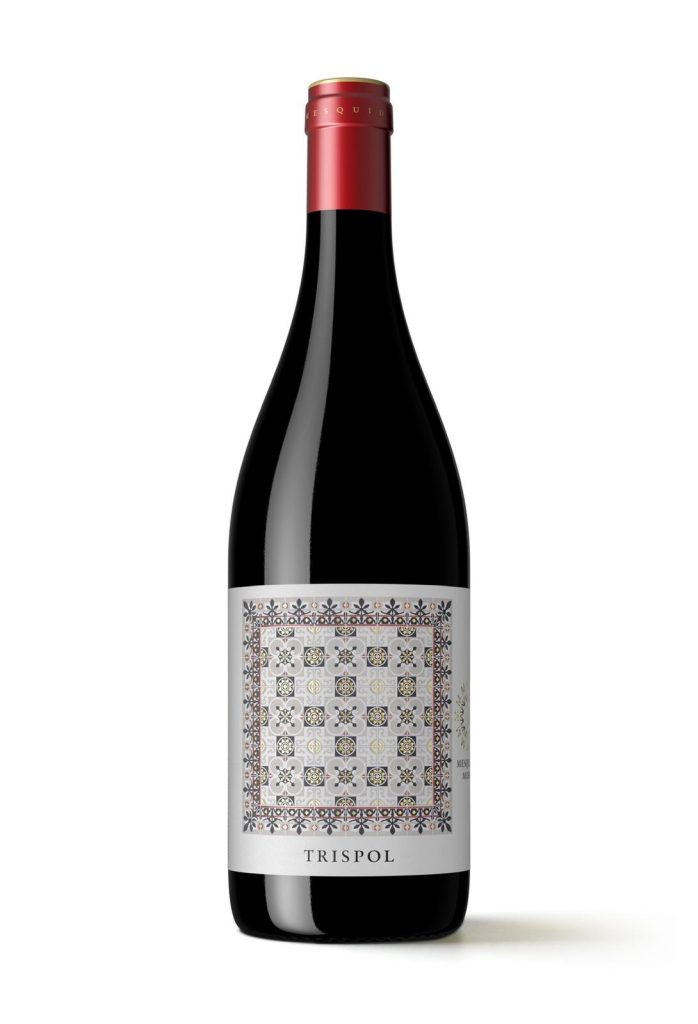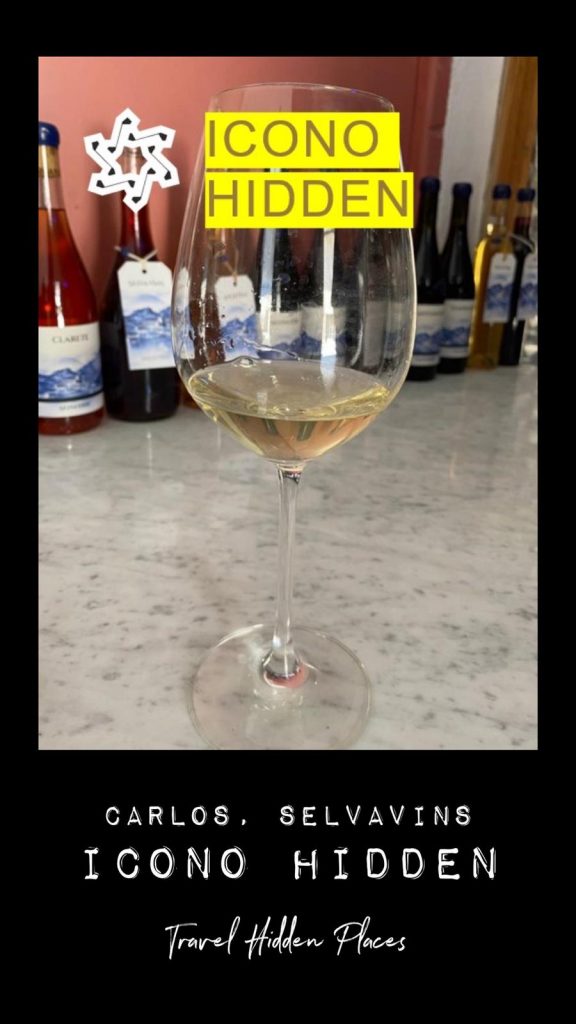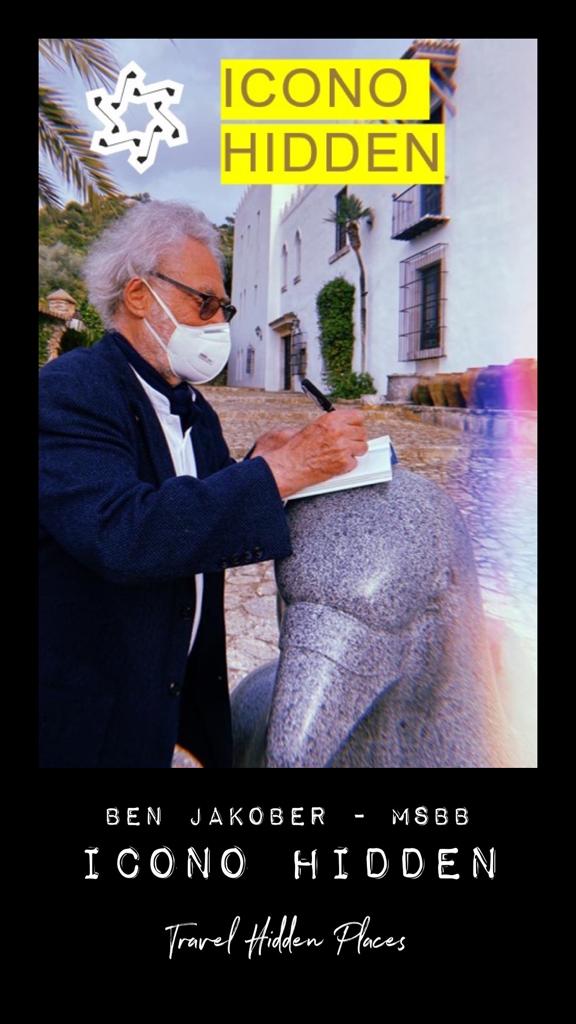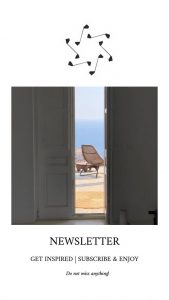✅ Barbara Mesquida and her Bodega Mesquida Mora are the true examples of how with work, perseverance, and illusion, projects and dreams come true.
▷ Why Hidden Icon?
Barbara is a talented woman with an energy that never goes unnoticed. She transmits illusion and good vibes. A professional from head to toe.
She was studying in Barcelona when she received a call to return to Mallorca and take over the family winery from her father, Jaume Mesquida. She did not hesitate, she put her studies on hold at that time because of her love of the land, wine, and her family and returned to the island.
She took her father’s winery to the top, until, for various reasons, she and her brother left her father’s project.
At that time, the Mesquida Mora brothers devised the project to create Barbara’s dream when she was a little girl: to create her own personal wine cellar. And although she started with her brother to think about it, the reality made this professional together with her brothers but she as captain rose and bet with this project until arriving at the present time. A respected winery, that does not stop growing, in all senses.

▷ In a Snapshot
Biodynamically cultivated wines with minimal intervention, which capture the authenticity of the corners of Es Pla, that hidden part of Mallorca not yet known for mass tourism.
#Talking
Barbara Mesquira Mora, in full post-confinement, readjusting to the new normality, has made room for us in her agenda, and we have talked to her from her recommendations of hidden places and hidden gems in Mallorca, the history of the beginnings of her winery, etc… Do not miss it!

1.- WINEGROWER DNA. You grew up among barrels, deposits, vines… At the age of 24 you took over the family winery and did an excellent job with Bodega Jaume Mesquida. But circumstances and perhaps fate led you to found your current winery, Mesquida Mora. Eight years since the beginning, what is your balance? Have you achieved the winery you dreamed of?
I am very happy with these eight years because little by little my dream of when I was a little girl is coming true: to have my own little winery and I like to be able to see that little by little you are building what you wanted and dreamed of.
That doesn’t mean that the road is easy, and even less so with the times we are living in now. Right now I would be satisfied with having an easy harvest, which would allow me to settle the project well, and leave all the gears in place …
I have had eight harvests that have not been excessively complicated, and I think that this time, the 2020 harvest will be very complicated, but I am eager to continue moving forward even if it is a time of great uncertainty. But I think that the experience of these 15 years has made us fight two very complicated moments that also give me this strength and experience to try to get out of this moment as successfully as possible. But I always continue and try to keep doing everything, with the same illusion.
So I think that the balance is positive even if we had to start over and is to make a path that above all is perseverance, enthusiasm, sacrifice, and always be surrounded by a very good team.
2.- INITIATIVE. Mesquida Mora has been working with biodynamic vineyards for more than ten years. Now there is a trend among the public to use terms such as “natural wine”, “biodynamic”, “organic wine”. Concepts that are very common, but with a lot of real confusion still. Could you explain the differences for our readers?
Yes, we started in 2007. We changed our winery, we were one of the first in Mallorca to make biodynamics, even one of the first in the country. In 2007, when you were talking about biodynamics, people looked at you strangely, even though in other countries it had already been done for years
And now it’s like a boom, right? Everyone is either making biodynamic, natural, or organic wines and if you don’t do it that way, it’s as if you were doing nothing… I think the important thing is to do things with your heart, sincerity, and being coherent and consistent with what you preach.
I always say that organic wines are wines that comply with the rules dictated by Europe and that adapt to regulation.
Biodynamic wines are based on Steinner’s philosophy, which was studied in 1924 and if you don’t take this into account, there is no point in applying it.
And natural wine is a label that has arrived more recently and that is where I think there is still more confusion of terminology about what is natural wine and what cannot be considered natural wine
Therefore I say that I make wines from biodynamic vineyards and that we do the work in the winery in the least interventionist way possible and more responsible always taking into account how the year is, the parameters of the wines, and so on.
Trying to apply the knowledge we have to the reality that exists and that if we had to make a natural wine label, for me there would have to be vineyards in organic cultivation and preferably biodynamic and would have to be wines with minimal intervention possible but, obviously making wine means an intervention, right? The moment you transform a fruit is no longer natural, there is already an intervention, and therefore they should be wines with minimum intervention, and that the natural wine label never hides the defects.
3. WORDS. What is the importance of choosing each of the names of your wines? What do you do for inspiration?
For me every wine has to tell a story because in the end we are all little children and we like to meet in a story, to be told a story, to have things explained to us and therefore I understand that philology and the years I spent in university have also marked me a little.
It’s important to me that they have a story behind them and that you can tell it.
I am inspired by my life, in short by things that are happening to me; a “Trispol” and a “Sotil” were what I needed to start a project again, they are two very different styles of wine
“Acrollam” is Mallorca in reverse because, for me, Mallorca is also inland, our winery is Porerres, a place that resists a little bit to the tourist pressure
And “Sincronia” is the things that happen at the same time, a term used in philology.
4. MORA MESQUIDA. A winery triumph of family synergies: you and your brother raising it again with your mother’s lands and vineyards. How has it been for your mother to see the success of your project? And how does your daughter see and live the winery?
The truth is that my brother participated in the initial idea of what the project had to be, but when it came time to implement it, he decided that he did not want to devote himself to wine and took a step backward. So now Mesquida Mora is my personal project but it would not be possible without many people who love me and who are also part of the team, the workers for example. My mother who has been and is indispensable as she has been in the creation and Joan the father of my daughter, who has also helped me a lot.
My mother is very happy, she suffers like any other mother, and I, as a mother, of another Barbara, see Barbara happy when she walks around the cellar, excited like a ten-year-old girl playing who is curious about some things and like all children, sometimes you explain something to them but they are not curious or not interested. I always tell her obviously that I would like her to make wine but above all what I tell her is that she has to do whatever makes her happy and what she does makes her happy and gives her a good time.
Because I also know and she knows the headache that the winery gives, although it makes me cry a lot, it also makes me laugh and it also makes me feel alive and I think that this is the important thing that, when you wake up on Monday morning, don’t think if it’s Monday, Tuesday, or if it’s Sunday but do the work with a lot of enthusiam.
5. TREND. Wine consumption has increased in recent years, and the public now wants to know and understand wine. In some occasions almost reaching snobbery. But the lover of good wine, the winemakers, the wine people of always are much more “simple”. What do you think of all this fashion?
I think that there are two polarities, some people are now into wine because they find it cool, modern as it gives you a certain pedigree, a false pedigree that, I do not know where they get it from and then people who come from the wine of a lifetime that, as my grandfather said and I always repeat, who has wine can not sleep. That’s why for me, the person who loves the land, we are connected to the land and we cry when we have an outbreak as with the situation now, and we get excited when the wine comes out well, in principle, we are simple people and humble people who know what things cost and we push forward projects.
Therefore, when you have money made in another sector and you invest in this, you have a different vision, but when you have to work on it every day and you know what a reparation costs and you know how difficult it is to sell wine, I think it is something else… I consider myself a very normal person and I enjoy a lot what I do.
6. COVID-19. This confinement is a severe economic and production shock in all sectors. For Mallorcan wine, also because a large part of your consumers are foreigners. How is it presented this season and what new initiatives are you going to promote in your winery or with the rest of the wineries in Mallorca in the coming months?
The truth is that if they had told us in February that it would arrive here, nobody would have believed it or had it in mind and that the world cannot be stopped… I think that a little bit has been demonstrated to us that yes, the world stops and we have been forced to stop.
We have to be aware that in Mallorca, wine consumption is mainly produced for the tourism that visits us, therefore we could talk about an “internal export” and that makes, obviously a year with closed borders and where the airports and ports are closed is guided by uncertainty.
I believe that it is a super atypical and anomalous season that we have been almost three months of commercial inactivity and that, well we will have to be satisfied with whatever there is and fight to be better, try to make wines better, in a year in which, climatologically it is also complicated. So we have to try to save the situation as much as we can, to see if we can also export a little bit, which is not easy either if you do not already have the markets … and try to get closer to the people living here so that they can continue to enjoy our wines, and above all be patient.
While the confinement has lasted we have tried to approach by selling door to door and that intention will remain as long as people want us to bring the wine to their home, we will be happy and good to go navigating the situation.
7. CREATIVITY. During this confinement, what have you done to keep it active?
The truth is that I don’t know if I’ve been too creative or not, but I’ve tried to be resourceful at a time when I see everything as a bit complicated and try to pull forward and try to find ingenious solutions, but I haven’t discovered the gunpowder at the moment (laughs).
8. PHASE. What have you missed most during this confinement? And what do you think it’s brought you?
What I missed most was the social and gastronomic part of life. I have missed going to restaurants, to bars that I like to go to… that part that is also very related to my work, the gastronomic part I have missed quite a lot.
It has brought me more calm, I have left that feeling that one is always in such a hurry, that there are always many things to do… and it is also true that although I have been able to go to the vineyards, and to make some home deliveries, I have not had that much of a feeling of confinement either, because I live in the countryside, I have been able to do and take care of the garden, walk around my house, etc…
9. HOME DELIVERY. How has been the experience of making home deliveries in Coronavirus time? You have been able to see friends, regular customers… Any surprise or anecdote?
The experience at home has been very pleasant, not so much because of the volume of wine sold, but it has been a movement of wine out, faster and although it has been a little bit, it has been something more anecdotic, it has been to try more the human character, to humanize and to put a face: to be able to meet again with friends, with acquaintances, with people that you don’t know but that even tell you to go up if you need a moment at home. …to drink a glass of water or to ask if they could offer you something, to thank you for going to their house… These have been pleasant moments and also to be able to move around an empty Mallorca, where there was nobody.
10. MESQUIDA MORA TOP. It’s a question we ask all our Hidden Icons. I’m sure it’s difficult but recommend one of your wines and why.
“Trispol”, because I think it shows a lot of the family background, that is to say, a wine that is made with native varieties and varieties from outside, native varieties such as Callet and which would also represent the beginnings like those of my grandfather, with the Cabernet and Syrah varieties, French varieties introduced by my father and mother over 40 years ago… and returning to Callet which, would be the native variety we would like to continue working with. In addition, “Trispol” is a wine whose label is the tiles from my grandparents’ house, where I learned to walk. It is a mosaic, which also recalls the three varieties with which it is made. We have just released 2018 which is a new harvest with lots of fruit.

HIDDEN RECOMMENDATIONS
Mallorca is full of special places, beyond Sa Foradada (which is beautiful and a magical place), recommend us where to go, what to do and what to see. Surprise us.

There are many “hidden places” but I recommend, for example, a walk along the beaches of the south: they are the beaches of my childhood, “Es Carbó”, “Es Trenc”, a day during the week with few people and for example to end up taking something in a place a little more modern, as the one of “Cinc Illes” that they do it very well or to go to “Hostal Playa” that, is a classic of “Sa Colònia de Sant Jordi”, is not so much a discovery but a return to my places of childhood… You can even get lost on the paths of “Es Pla”: car paths that are more unknown, for example, to go for a bike ride








